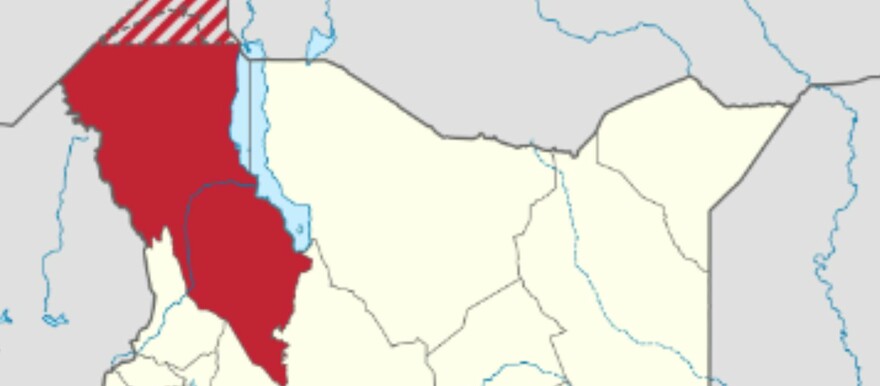The Kenya Defence Forces (KDF) will on Wednesday start deploying in the restive North Rift area of Kenya, parts of which border South Sudan’s Eastern Equatoria State.
On 6 February, fighting erupted between the Toposa of South Sudan and Turkana of Kenya in Eastern Equatoria State over the common border between the two countries and alleged encroachment by Kenya into South Sudan territory.
Kenyan Defence Cabinet Secretary Aden Duale gazetted the deployment of KDF to support the Kenya Police Service in dealing with bandits in the North Rift following President William Ruto’s order for joint security operations by the army and police to weed out bandits in the regions.
“…notice is given that on 15 February 2023, the Kenya Defence Forces shall be deployed in support of the National Police Service in response to the security emergency in Turkana, West Pokot, ELgeyo, Marakwet, Baringo, Laikipia, and Samburu Counties caused by rampant incidents of banditry,” Duale’s gazette notice read.
Meanwhile, Interior Cabinet Secretary Kithure Kindiki instituted a 30-day curfew in the insecure parts of affected counties.
Kindiki has banned all public gatherings, processions, or movement, either alone or as a group during the period of the curfew except as has been permitted in writing by the Inspector-General of the National Police Service.
Kindiki has also declared parts of Turkana, West Pokot, Elgeyo Marakwet, Baringo, Laikipia, and Samburu as “disturbed” and “Dangerous” allowing the use of lethal force on bandits.
“During the last six months, over 100 civilians and 16 police officers have been brutally rendered by marauding bandits and livestock rustling terrorists in the Nothern Rift Valley Region in Kenya,” Kindiki said on Monday.
Last week’s clashes between the Toposa and Turkana occurred after the latter allegedly attacked the Toposa in Nadapal and claimed that Toposa pastoralists encroached into their territory.
A week before the clashes, hundreds of Kapoeta East County residents peacefully demonstrated after Kenya deployed soldiers on South Sudanese territory claiming that the border between the two countries is in the Nakodok area of Kapoeta East County. The protestors were later supported by some state parliamentarians who said that the national government’s silence on the matter implied that South Sudanese territory had been ceded and or sold to Kenya.
On 9 February, local authorities in Kapoeta East County in Eastern Equatoria State said tensions were heightened between the Toposa of South Sudan and Turkana of Kenya after fresh clashes claimed the lives of about 13 people leading to the closure of the border stalling transport between the two countries.
Abdalla Angelo, the Kapoeta East Commissioner, at the time told Radio Tamazuj that Turkana youths encroached on Toposa grazing lands causing a fight in which 13 Toposa youths lost their lives.
He further claimed that four people, a Toposa man, and three Turkana youths, sustained injuries and were being treated at the Kapoeta Hospital and in Lokichoggio in Kenya respectively.
“It happened on Wednesday 8 February at 3:10 pm because our people said there is not any problem they decided to go back to their places. These people (Turkana) started shooting our people and our people fought back and chased them up to their barracks. Five people were killed,” he explained. “The day before, on 7 February, eight people were killed. We are now on alert and patrols will continue until organized forces are deployed. The Kenyans are saying that Nadapal is now their county and Nakodo is a payam. We will take the case to court.”
However, South Sudan’s Ministry of Foreign Affairs and International Cooperation reassured the public of the government’s efforts to resolve all border disputes with neighboring countries following clashes between the Toposa and Turkana of Kenya.
South Sudan’s Deputy Foreign Minister Deng Dau Deng Malek said the national government will not cede an inch of land to any country.
“South Sudan will never leave an inch of its land to another country. South Sudan is called a country because of a defined territory and population and we want to inform our youths to be calm, be patient, your country is addressing all these matters,” Dau said. “We have the National Border Commission that has been working with the Republic of Kenya and the Republic of Uganda. South Sudan has quite several areas that have been entered into by our neighbors and we have been discussing them in the context of the African Union and we have been engaging at that level between ourselves and these particular two countries.”




